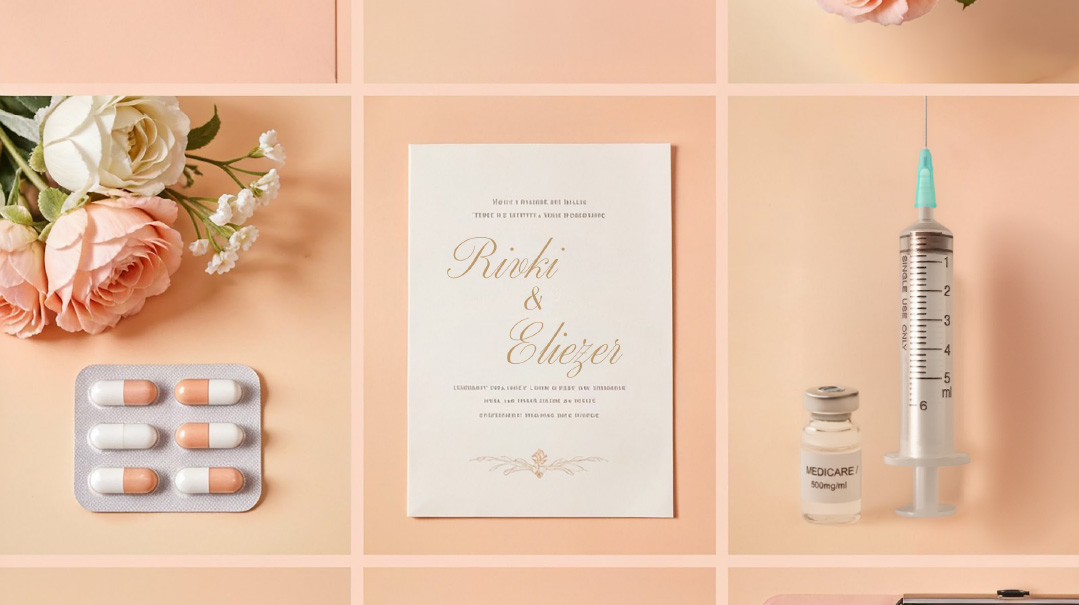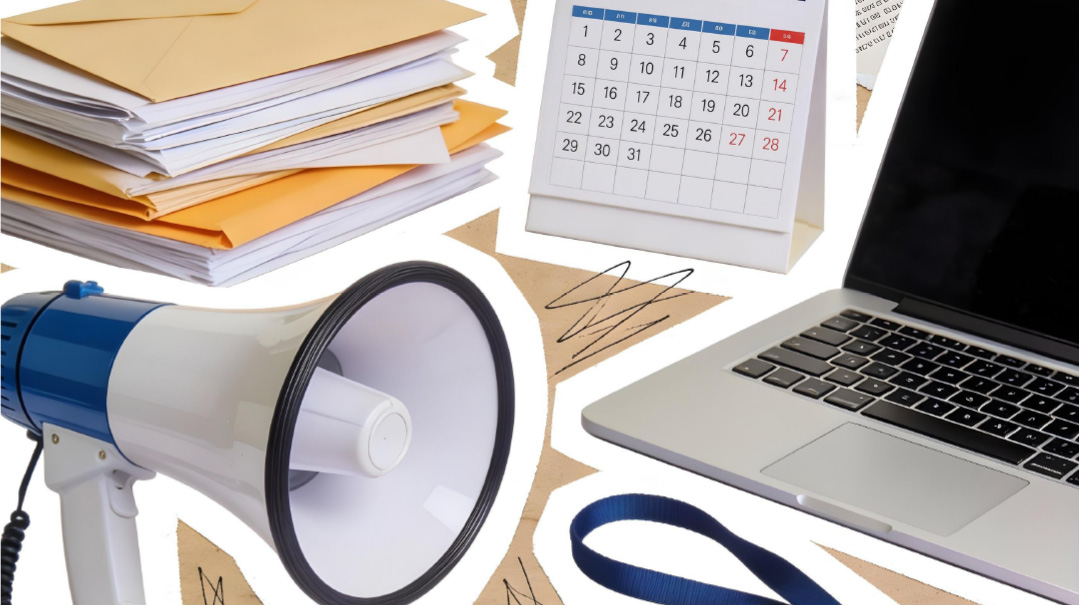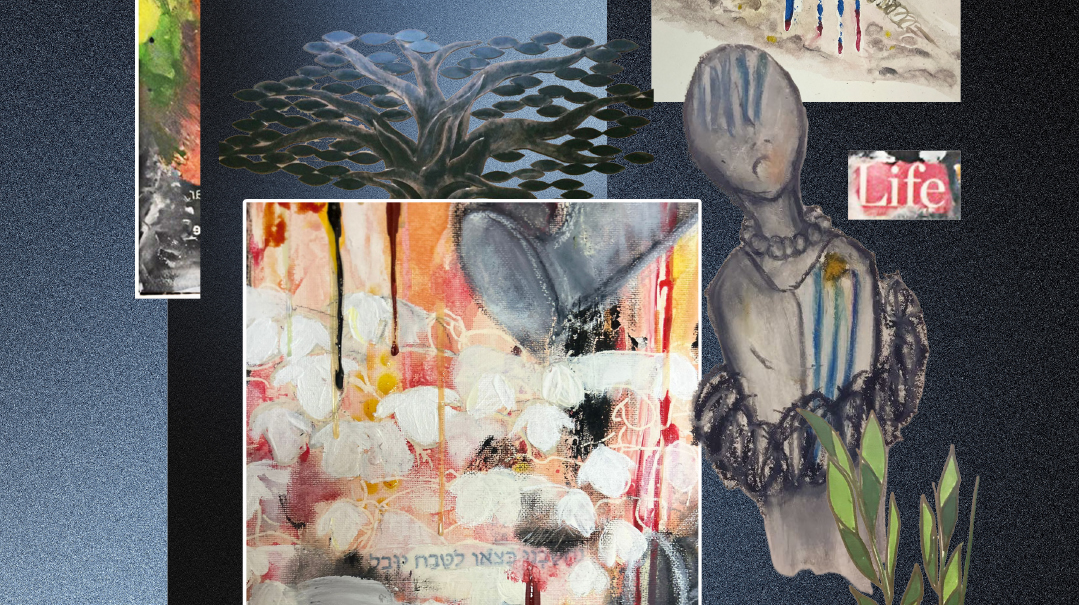Meet Dr. Eliana M. Aaron

Dr. Eliana Aaron cared for diplomats, but the vulnerable were her calling

Ty fascination with healthcare goes back a long way. Inspired by my close relationship with my grandparents, two of whom were Holocaust survivors, I loved spending time with elderly people and found I had a keen sense of what people needed and lacked. Owing to five generations of doctors in my family, when it came time to choose a profession, medicine was the obvious pick.
It’s not easy for a frum wife and mother to train in healthcare, considering the 36-hour resident shifts needed to become a physician. So I chose to become a nurse practitioner instead, which meant I could provide the same level of healthcare as a physician, minus those endless shifts. At some point I applied for a position as a foreign service nurse practitioner (FSNP), which is a nurse practitioner hired by the Department of State to take care of US diplomats around the world — but before receiving a request for an interview, we decided to make aliyah.
The Nonexistent Profession
Twenty years ago, if you told Israelis that you were a nurse practitioner, they didn’t know what you were talking about. It was a nonexistent profession there, albeit well-known and established in the US. Which meant that when I saw an ad for a nurse position at the US Consulate General in Jerusalem and realized it was similar to the FSNP position I’d applied for, I jumped on it — and got the job.
It was a multifaceted role, with some dizzying responsibilities, like overseeing the health and well-being of diplomats and their families who were stationed in and around Jerusalem. I was also responsible for developing the State Department’s health-planning policies, including pandemic protocols for the Middle East region, as well as the healthcare and well-being of all visiting dignitaries of the US government — namely, the president, cabinet, and military members.
I interfaced with healthcare providers back in the US and had to advocate for the highest quality of care for the patients under my charge, which meant that I was often visiting hospitals, meeting with contacts, and inspecting facilities and judging the quality of service. Often, I or a team member had to assess patients, as we were answerable to the higher-ups in the State Department and had to accurately report on the status of patients.
Since I was the founder of the consulate’s health unit, I was able to grow the unit to meet emerging needs. I was responsible for obtaining funding and care for children of diplomats with special needs. I worked with international schools to get health treatment, and managed funding requests and approvals for educational testing, supplemental services, and paramedical services like speech and occupational therapy.
In the eight years I was at the consulate, I was often the point of contact for US government officials in the region for all things medical. When, for example, Prime Minister Ariel Sharon was in a coma, for the first week I was getting phone calls from the White House every few hours to check up on his status.
When I started out, it was a challenge to explain what I was doing to my Israeli peers and colleagues because they weren’t familiar with my training. I’d walk into Hadassah wearing a stethoscope, and doctors would wonder why. Today, the profession has blossomed within Israel, though still not for those with foreign degrees, but at least people know what I do.
Holes in the System
At the consulate, as I began to identify gaps in the Israeli healthcare system and do my best to maneuver through them, I realized that, aside from diplomats, my primary clientele, there were many more people — immigrants, the elderly, foreign students, even some Israelis — who also fell through the cracks. I experienced firsthand how, as a new olah, I wasn’t managing to access the same level of care as those who’ve lived here a long time.
The system isn’t intuitive for non-Israelis. There’s no dedicated English hotline in any of the kupot cholim (the healthcare providers), the websites and processes are unfamiliar, and there’s often no one around to explain things to you. Even though I was a health professional who spoke Hebrew, I struggled. I was also contacted for advice by Nefesh B’Nefesh and other international organizations on how to navigate multiple complex medical cases. And at the consulate, I began to experience how the health system doesn’t adapt to people who don’t have Israeli health insurance, such as tourists and students.
Driven by my excitement to create change, to help more people, and by my fledgling vision for a medical startup that would address that, I went back to school. I wanted to specialize in policy, leadership, and health management, alongside training to doctorate level in clinical nursing practice. In America, that’s equivalent to an MD. I chose Yale University — and got in — because I felt if Israel wasn’t going to accept my degree, let it be from the best university in America.
My family was incredibly supportive. I had my husband and three girls vote on my plans for graduate school, and their support for my undertaking a demanding several years of further education was unanimous.
In the span of three years that I was at Yale, I commuted from Israel to the US twenty-one times. It was tough not being able to attend Friday’s classes remotely from Israel, and though my Jewish values only garnered respect and understanding, it made sense for me to be on campus and in the same time zone as much as possible.
Dream Come True
Becoming an entrepreneur and opening EMA Care was making a dream happen.
At the consulate and the Department of State, I experienced a lot of anti-Semitism, which quickly tainted my view of the job. I launched EMA Care (a play on the initials of my own name, but pronounced “Ima”) in 2015, soon after my graduation from Yale, with the goal of providing high-level medical services within my own community, a mission that continues to excite me.
One of the first areas I was able to affect change in was access to medical services by students learning in Israel. Some of the students coming to Israel have never been to the doctor without a parent before, and are suddenly expected to manage their own healthcare in a foreign country and a challenging system. I created services to help streamline students’ healthcare. We offer care-management programs for students with preexisting issues; the first English-language telemedicine 24 / 7 hotline; school-based clinics for students; and direct communication with parents, who previously could only speak to the educational staff about their children’s health issues.
We also largely focused our attention toward Anglo seniors living in Israel. With their children living overseas, I found they often had few people advocating for their medical care.
We developed a system whereby people sign up as members for a minimal monthly cost, almost like insurance, but for what I call medical assurance, and they’re then able to utilize our services for things not covered by their insurance plans, including an English explanation for what’s going on.
Covid Truths
Then Covid happened.
When the first lockdown went into effect, we had to step in and champion for those who didn’t have family homes, like students in seminaries and yeshivos. I quickly realized that there were other populations within the Israeli system who fell into this category too, like children from complex families who live in dormitories and had no homes to go to.
Things moved quickly. I was consulted by the Ministry of Health on policy development for foreigners in Israel, including students and tourists, and simultaneously grew my knowledge base of Covid and its far-reaching effects by learning to tease out the real from the fake within the huge overload of information. I developed an English-language information site which lasted all of a month — until the Ministry of Health quickly caught on and requested my assistance in developing their English Covid website.
All of this took my staff and I hundreds of hours, and we did this without payment, to help the community at large. I was worried about a very real possibility that the government would ban foreign students altogether, and I knew firsthand how vital these programs are for the Jewish community abroad.
I was seen as a resource for reliable Covid information, and suddenly I was being contacted by rabbanim across the country and abroad who wanted to understand more about Covid and how to give educated responses to sh’eilos. I was called for interviews in India, Germany, and the US. I got people on payroll to evaluate the research and help interpret information so people could feel informed, rather than overwhelmed, and be able to make sense of our new world.
In March 2020, I opened a public WhatsApp group as a resource of verified Covid-related information and updates for our community. Two years in, we have about 19 groups running, totaling a community of about 5,000 people. And we remain the only full-time English-language general telemedicine hotline in Israel, where clients can call knowing someone live will answer and help them.
Light up the World
My overarching message to other frum women, and to the world at large, is the same message that I try to give to my daughters — who, incidentally, have each chosen very different career paths. Don’t be limited in your aspirations. We are lucky to live in a world that affords more opportunities than ever to learn and grow, both personally and professionally.
Being frum also gives you the opportunity to be an ohr l’goyim, a light unto the nations. I believe strongly that everyone has the ability to have a positive impact, on their families, on their communities, and globally, and each person needs to find what their niche is and how they want to achieve that impact. For many, it’s raising their children, for some it’s being involved in charitable community work, and for others, it’s having an influential career on top of all that. But the main thing is to remember that you have the freedom to make your dreams happen.
Future dreams
I’m currently working on a very large project that, if successful, could revolutionize epidemiology information and communication across the world and in many industries. I’ve been working on this for a while and we’re currently looking for funding or partners to move that to the next level. That’s my professional vision.
Personally, I want to be able to enjoy my family and my grandchildren. I want to continue impacting my community and the world on a larger scale.
If I had spare time
I’d write a book of all the interesting stories and people I’ve seen and come across, the funny and the serious. I have so many!
The most challenging aspect of my work
At the consulate, I faced a lot of anti-Israel sentiments within the State Department. When you move to Israel, you’re not prepared to deal with anti-Semitism like you are in America, so it was an upsetting shock to me.
Also, I’ve found that when people look at you, they’re quick to draw conclusions. So, for example, when they see a scarf on your head, they make some radical assumptions. I’ve had to work hard to break those stereotypes and bring down some of those barriers. Conversely, I find it rewarding when I succeed, when I can prove who we are as individuals, not limited by others’ preconceived notions. And it works in the other direction too. It’s important for us to challenge our preexisting beliefs about others and accept that people are individuals and different from each other.
I knew I was making a difference when
Diplomats with medical issues started moving to Jerusalem when they heard I was at the consulate there. In particular, I found — to my delight and astonishment — that during my tenure, all diplomats with prior fertility complications went on to have babies upon their move to Jerusalem. People started choosing to serve in Jerusalem because of this. They asked if it was “something in the water.” I felt it was G-d’s way of encouraging my work. Ohr l’goyim.
(Originally featured in Family First, Issue 787)
Oops! We could not locate your form.







